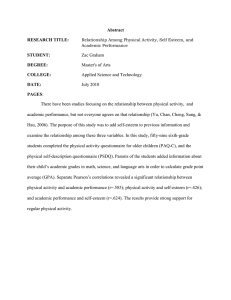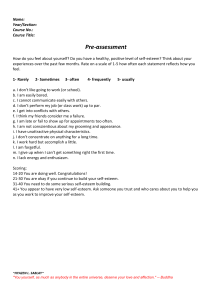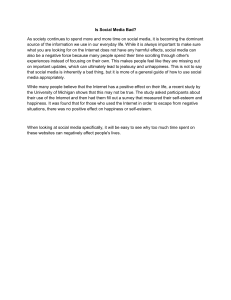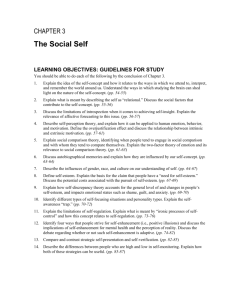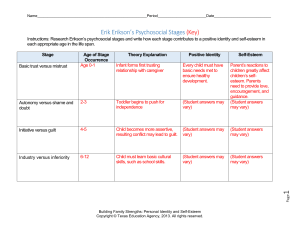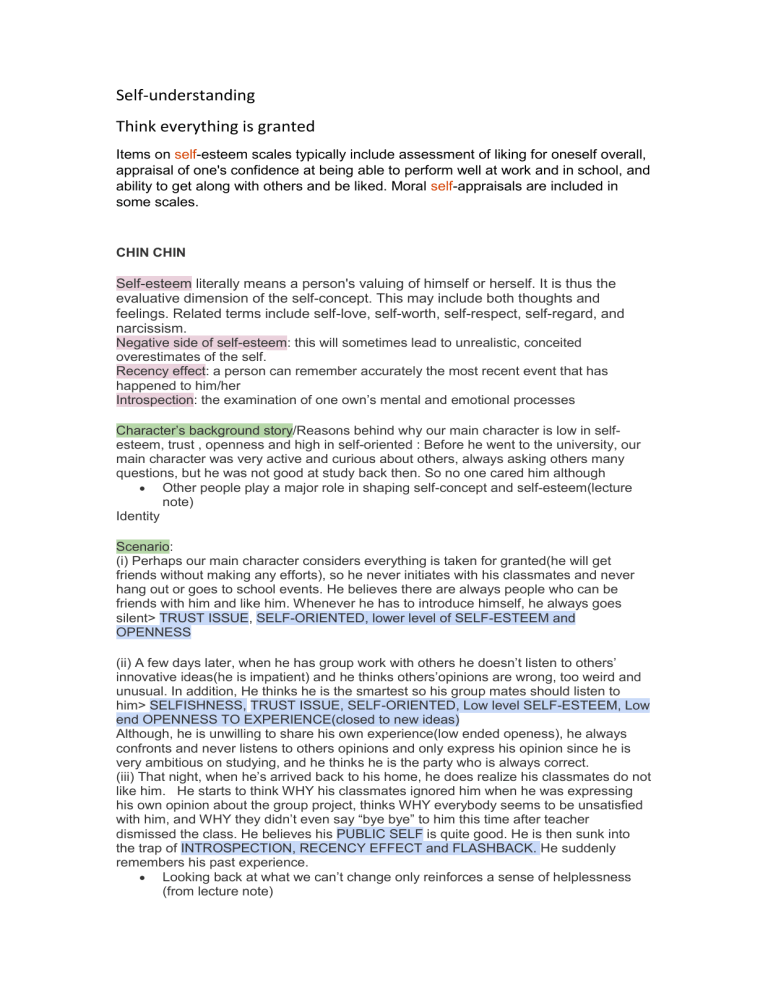
Self-understanding Think everything is granted Items on self-esteem scales typically include assessment of liking for oneself overall, appraisal of one's confidence at being able to perform well at work and in school, and ability to get along with others and be liked. Moral self-appraisals are included in some scales. CHIN CHIN Self-esteem literally means a person's valuing of himself or herself. It is thus the evaluative dimension of the self-concept. This may include both thoughts and feelings. Related terms include self-love, self-worth, self-respect, self-regard, and narcissism. Negative side of self-esteem: this will sometimes lead to unrealistic, conceited overestimates of the self. Recency effect: a person can remember accurately the most recent event that has happened to him/her Introspection: the examination of one own’s mental and emotional processes Character’s background story/Reasons behind why our main character is low in selfesteem, trust , openness and high in self-oriented : Before he went to the university, our main character was very active and curious about others, always asking others many questions, but he was not good at study back then. So no one cared him although Other people play a major role in shaping self-concept and self-esteem(lecture note) Identity Scenario: (i) Perhaps our main character considers everything is taken for granted(he will get friends without making any efforts), so he never initiates with his classmates and never hang out or goes to school events. He believes there are always people who can be friends with him and like him. Whenever he has to introduce himself, he always goes silent> TRUST ISSUE, SELF-ORIENTED, lower level of SELF-ESTEEM and OPENNESS (ii) A few days later, when he has group work with others he doesn’t listen to others’ innovative ideas(he is impatient) and he thinks others’opinions are wrong, too weird and unusual. In addition, He thinks he is the smartest so his group mates should listen to him> SELFISHNESS, TRUST ISSUE, SELF-ORIENTED, Low level SELF-ESTEEM, Low end OPENNESS TO EXPERIENCE(closed to new ideas) Although, he is unwilling to share his own experience(low ended openess), he always confronts and never listens to others opinions and only express his opinion since he is very ambitious on studying, and he thinks he is the party who is always correct. (iii) That night, when he’s arrived back to his home, he does realize his classmates do not like him. He starts to think WHY his classmates ignored him when he was expressing his own opinion about the group project, thinks WHY everybody seems to be unsatisfied with him, and WHY they didn’t even say “bye bye” to him this time after teacher dismissed the class. He believes his PUBLIC SELF is quite good. He is then sunk into the trap of INTROSPECTION, RECENCY EFFECT and FLASHBACK. He suddenly remembers his past experience. Looking back at what we can’t change only reinforces a sense of helplessness (from lecture note) Conclusion: According to Johari Window(Luft, 1969), our main character might have more “BLIND” area. RUMI “Yesterday I was clever so I wanted to change the world. Today, I am wise, so I’m changing myself”

